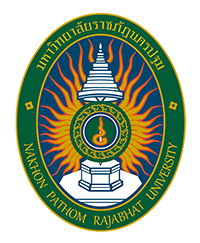 การประชุมวิชาการระดับชาติ ครั้งที่ 16
|
| Title | Factors Affecting Farmers’ Conversion to Sustainable Cropping Patterns, Ban Mae Wak, Mae Najon Sub-district, Mae Chaem District, Chiang Mai Province |
|---|---|
| Other Titles: | ปัจจัยที่มีผลต่อการปรับเปลี่ยนไปสู่รูปแบบการปลูกพืชแบบยั่งยืน ของเกษตรกร บ้านแม่วาก ตำบลแม่นาจร อำเภอแม่แจ่ม จังหวัดเชียงใหม่ |
| Authors EN |
|
| Authors TH |
|
| Keywords | Sustainable Cropping Patterns,Farmers’ Conversion |
| Issue Date | 13-Aug-2024 |
| Publisher | The 16th NPRU National Academic Conference Nakhon Pathom Rajabhat University |
| Abstract | This research study aims to: 1) Study the basic personal, economic, and social characteristics of farmers in Ban Mae Wak, Mae Chaem District, Chiang Mai Province; 2) Analyze Factors Affecting Farmers’ Conversion to Sustainable Cropping Patterns, in Ban Mae Wak, Mae Chaem District, Chiang Mai Province; and 3) Propose guidelines for promoting the transition to sustainable farming practices among farmers in Ban Mae Wak, Mae Chaem District, Chiang Mai Province.
The researcher collected data using an interview form from a sample of 101 farmer households in Ban Mae Wak, Tambon Mae Na Chon, Mae Chaem District, Chiang Mai Province. The data were analyzed using frequency, percentage, mean, maximum, minimum, standard deviation, and inferential statistics to analyze the factors influencing the transition from monoculture to sustainable farming practices among farmers using logistic regression analysis. The results of the study showed that the majority of farmers (66.3%) were male with an average age of 52.89 years. They had completed primary education (grades 1-6), had an average of 3.85 household members, 2.26 agricultural laborers within the household, and 25.29 years of farming experience. They had an average of 19.06 rai of agricultural land and an average annual income from farming of 120,756.43 baht. The majority (72.3%) had access to capital from the village fund. Farmers had an average of 1.63 contacts per month with agricultural officers, received knowledge transfer from the Highland Research and Development Institute an average of 1.99 times per month, and received agricultural news an average of 5.62 times per month. Farmers had adopted sustainable farming practices at a rate of 33.7%. Logistic regression analysis showed that two factors influenced affecting farmers’ conversion to sustainable cropping patterns, access to capital and contact with agricultural officers. Guidelines for promoting the transition to sustainable farming practices for farmers, farmer groups, and various agencies were proposed. Relevant agencies should prioritize providing farmers with knowledge about new crops that meet market demand, as well as supporting production factors, developing water sources, and improving water systems to reach farmers. Agricultural officers should also provide regular follow-up and advice to help farmers transition to sustainable farming practices. |
| ISBN | 978-974-7063-46-2 |
| URI | https://rdi.npru.ac.th/conference16 |